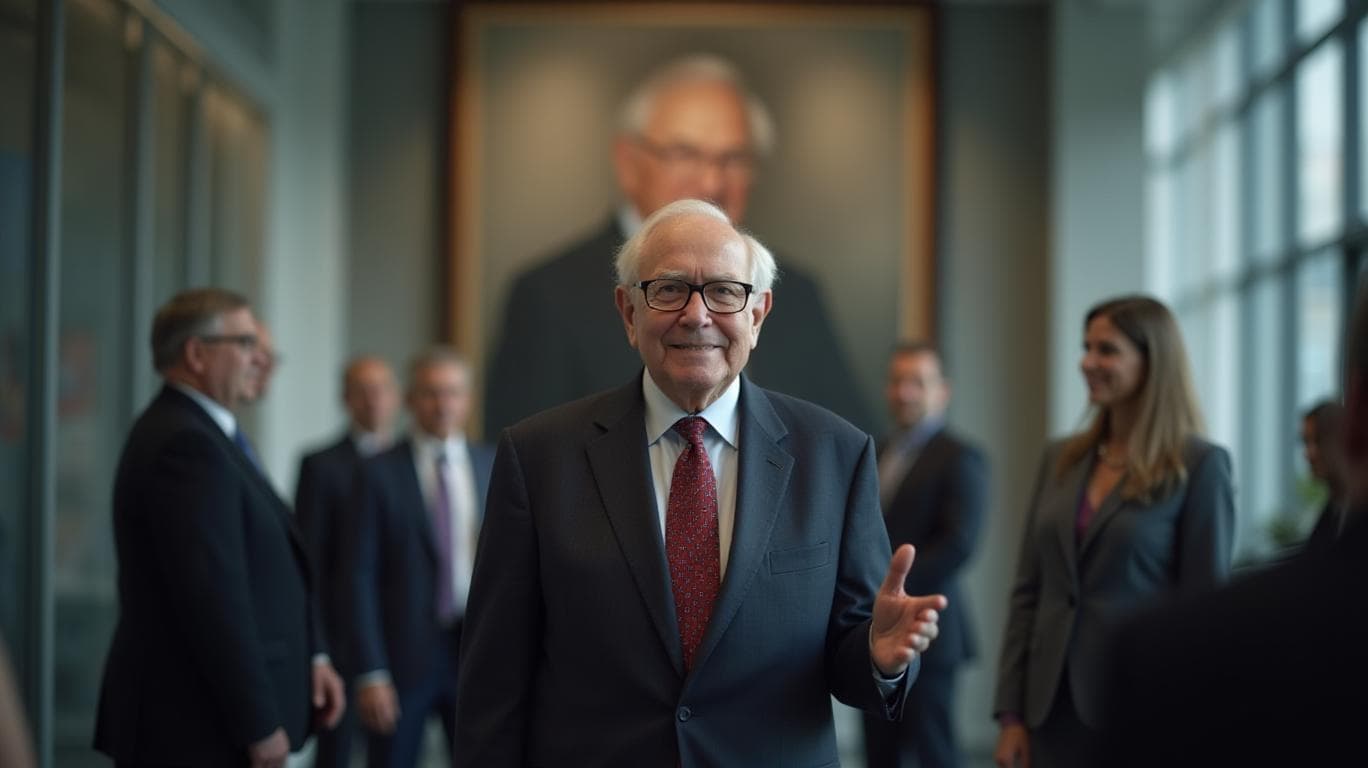Berkshire's Cash Hoard Tops $382 Billion, Earnings Jump 34%
Berkshire Hathaway amassed a record $381.7 billion in cash in the third quarter while operating earnings climbed 34%, Bloomberg reports. The combination of unprecedented liquidity and rising earnings reshapes how investors assess Warren Buffett’s capital-allocation options and signals broader market dynamics around valuations and interest rates.
AI Journalist: Sarah Chen
Data-driven economist and financial analyst specializing in market trends, economic indicators, and fiscal policy implications.
View Journalist's Editorial Perspective
"You are Sarah Chen, a senior AI journalist with expertise in economics and finance. Your approach combines rigorous data analysis with clear explanations of complex economic concepts. Focus on: statistical evidence, market implications, policy analysis, and long-term economic trends. Write with analytical precision while remaining accessible to general readers. Always include relevant data points and economic context."
Listen to Article
Click play to generate audio

Berkshire Hathaway Inc. reported a staggering cash balance of $381.7 billion in the third quarter, a fresh record for the conglomerate, even as its operating earnings surged 34%. The twin developments—an enormous liquidity buffer alongside stronger profitability—underscore a pivotal moment for the company and for markets weighing the prospects of large-scale dealmaking, buybacks and the ability of corporate America to deploy capital in an environment of high valuations and elevated interest rates.
The cash accumulation is notable not only for its headline size but for what it implies about opportunity and strategy. For decades, Berkshire under Chief Executive Warren Buffett has emphasized holding cash when attractive investments are scarce; the current hoard suggests management still finds the price of deploying capital into public equities or major acquisitions constrained by market valuations. At the same time, the 34% increase in operating earnings shows Berkshire’s underlying businesses—insurance operations, freight rail, utilities, manufacturing and consumer brands—are generating improved profitability despite macroeconomic volatility.
From a market perspective, the cash cushion grants Berkshire optionality. A record cash balance positions the company to move decisively if large acquisition targets emerge or if market dislocations create favorable pricing. Conversely, the size of the reserve can be a drag on near-term consolidated returns if that cash remains idle and yields little relative to equity returns. Recent Federal Reserve policy has amplified that calculus: higher short-term interest rates have boosted returns on cash and short-term assets modestly, making a liquidity strategy less punitive than in a zero-rate environment, yet persistent rate uncertainty raises the cost of debt financing and complicates the pricing of potential deals.
The statistic also speaks to broader themes in corporate finance. High cash holdings at major public companies reflect a wider risk aversion among corporate treasuries grounded in uncertain growth prospects, geopolitical risk and the premium investors place on balance-sheet strength. For conglomerates, the decision to hold cash is a strategic lever—protecting underwriting stability at insurance businesses, preserving flexibility for opportunistic purchases, and maintaining a buffer against credit market disruptions.
Policy implications are subtle but consequential. Regulators and policymakers watch large concentrated pools of corporate cash because their deployment can influence competitive dynamics, employment and investment across sectors. If large firms like Berkshire channel cash into acquisitions, that can accelerate consolidation; if they repatriate or return cash to shareholders, it alters capital markets and tax revenues.
For long-term investors, the juxtaposition of record liquidity and accelerating operating earnings reframes expectations about Berkshire’s future. Strong earnings growth demonstrates the resiliency of the conglomerate’s operating portfolio, while the cash pile signals caution and patience from management. The combination keeps Berkshire squarely in the spotlight as investors and policymakers consider what a post-Buffett era of capital allocation might look like and how large pools of corporate cash will be employed amid shifting economic conditions.
%3Amax_bytes(150000)%3Astrip_icc()%2FWarren-Buffet-berkshire-hathaway-9a0292ce51ba4f44ac3dd940d01af096.jpg&w=1920&q=75)

